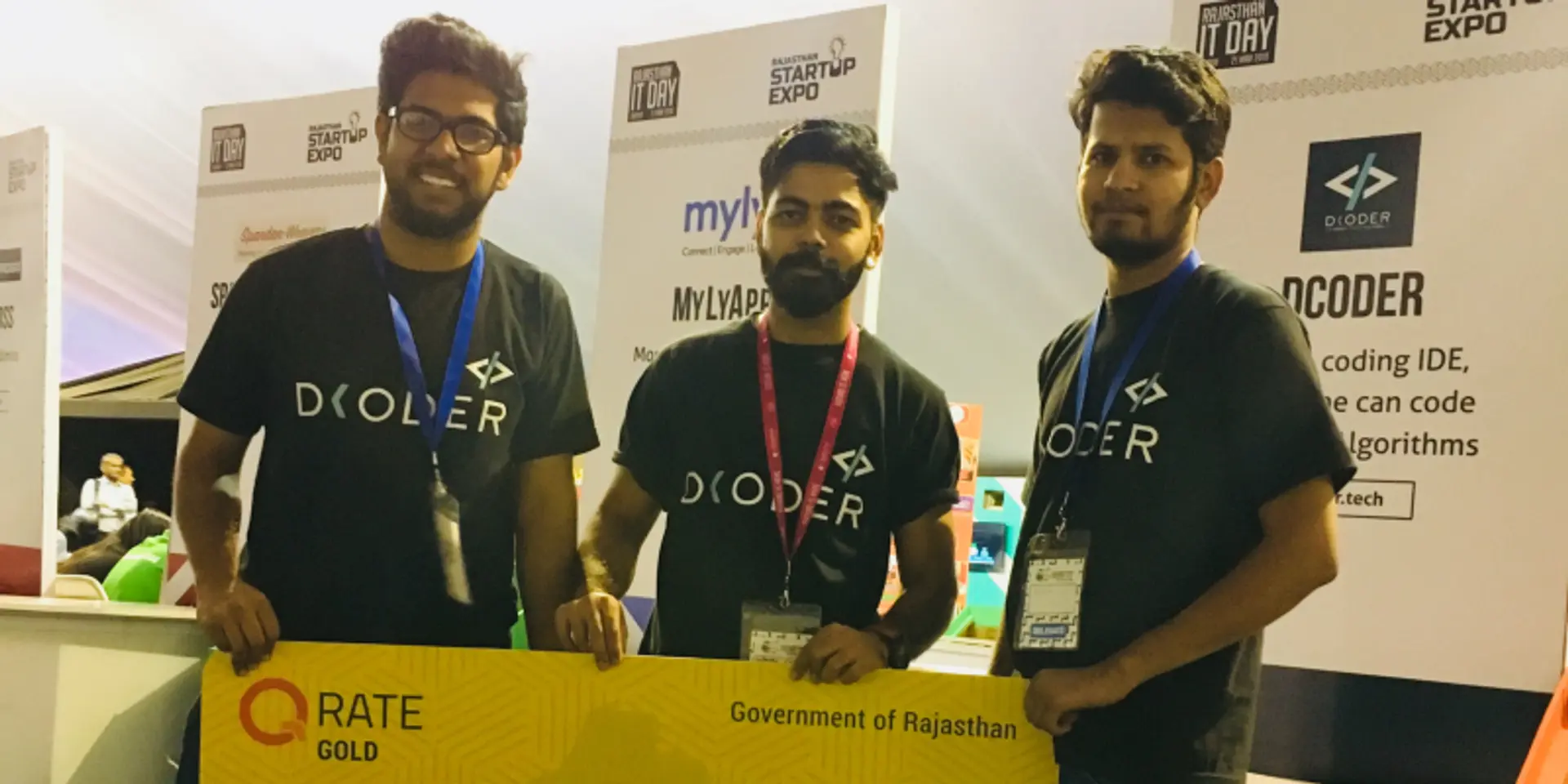No laptop, no problem: Rajasthan-based Dcoder lets you code on your mobile
Making coding simple, Dcoder is a mobile coding platform that lets anyone code on their smartphone in over 35 programming languages.
For a coder, their laptop is their lifeline. But what if it goes missing one day and you cannot afford to get a new one immediately? Or what if a good smartphone is all you can get at the moment?
Ankush Chugh truly understood the value of his laptop, when it was stolen. Being an avid coder himself, he decided he needed to find an alternative to the laptop that allows programmers to code in peace, anywhere, anytime.
Smartphones are ubiquitous now and that provided the solution for Ankush.
“I thought, ‘why not build an IDE (code editor and compiler) for mobiles?’ It will let programmers, coders, hackers and students code on mobile and practise their skills and improve it with the resources they have,” says Ankush.
During his final year, Ankush started working on Dcoder and launched it in July 2016. It is a mobile coding platform (IDE) that lets any programmer code on a mobile in over 35 programming languages. It took Ankush six to eight months to release the basic minimum viable product (MVP) and since then the team has been iterating the product. Currently a team of five, Ankush met Shubham Soni at a job fair, a core member of the team. While Ankush has a Bachelor’s in Electronics, Shubham is currently in his final year.
What does it do?
So how does it work? Well, you write your code on the phone on Dcoder’s code editor. It is then sent to the cloud servers where it is compiled and executed, and the output is redirected to the mobile screen. CodeNow, which is Dcoder’s code editor, allows you to select a programming language to write code, or you can also select a template from the options on the app.
Algoyo, a section on the Dcoder app, lists challenges that coders can participate in to accumulate XPs. It allows them to showcase their coding skills and find place on the ‘Global Leaderboard’ according to their ranking.

Working around fast growth
Dcoder already has more than a million downloads on Google Play and over 100,000 active users on the platform each month. With the increased number of users each month, Dcoder realised the importance of constantly scaling servers and optimising the solution for better performance.
Along the way, Dcoder had to grapple with several challenges. Recently, a Russian court banned Telegram in the country on grounds of non-compliance with local law. Consequently, more than a million IPs of Amazon were banned. Dcoder, which uses Amazon Web Services (AWS) for its cloud needs, had to find alternatives to continue running.
“We constantly find ourselves in similar other challenges and we have been growing through them,” says Ankush.
Coding a successful venture
The app is free for basic functionality, and for premium features users can opt for subscriptions at $7.49 per year or $0.99 per month from the ‘Go pro’ menu option. The premium users get additional features like code editor themes, D-pad navigator, ads-free experience and more.
Dcoder sees 50 to 60 percent of renewals from its yearly subscribers and close to an 80-percent renewal from monthly. The platform has more than a million downloads internationally on the Android app, with more than 100 thousand active users each month.
“We serve more than a million code compilations each month. We are also serving 25,000-30,000 sessions daily on our mobile platform. We have seen more than 130-percent growth in revenue year-on-year,” says Ankush.
Funding and competition
Starting with Ankush’s personal savings of $200, Dcoder is now part of Facebook’s FB Start Accelerated Startups and Rajasthan Government’s iStart initiative. He adds this has helped them keep the costs low as they are provided with credits for the servers and incubation space at India’s biggest incubator Bhamashah Technohub free of cost.
As far as competition is concerned, there is Tech30 company Hasura, which is a platform that helps developers build, develop, and scale their apps. The platform has instant APIs for rapid development, and it helps create a to-do app within three minutes. It also has native SDKs that can be used for instant or custom APIs. They are generated automatically when the APIs are generated.
But what sets Dcoder apart, Ankush says, is the app’s compiler speed. “Dcoder cloud compilers are one of the fastest. We rely a lot on user experience and the compile speed itself is part of the experience for a compiler app. Dcoder compiles the code in about 1-2 seconds on an average while most competitors take 5-10 seconds to do the same task,” he adds.
Ankush has ambitious plans for the future. “We plan to build the world’s biggest connected coding platform, where you can start coding on desktops at a computer class and pick up where you left on your mobile after coming home; in other words, your codes and progress are synced. Our aim is to reach three million programmers in the next one year,” the young entrepreneur quips.



